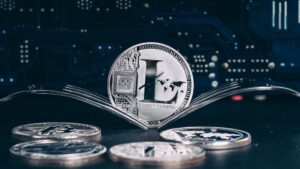In 2021, the crypto trading platforms market was valued at around $329.6 million and is projected to reach $675 million by 2028. Today, 70% of crypto trading platforms have generated more than $1 billion in revenue. Boosted by an increased accessibility to smartphones, mobile crypto applications and cryptocurrency platform use continues to rise despite recent doubts on the credibility and security of digital currencies.
A study from the University of Nottingham on celebrity and government endorsements of crypto found that most consumers rely on third-party trust when making their crypto purchasing decisions. While cryptocurrency may still inspire doubts or concerns due to its novelty, most people are able to put aside these questions when a product is backed by authority or celebrity figures. There is also another factor that could further improve the credibility of crypto: the use of self-custody wallets, which we’ll be discussing in today’s post.
Cryptocurrencies aren’t going away. Buy Bitcoin & Litecoin here.
What are some common threats to cryptocurrency?
Before we discuss what self-custody wallets are, it’s important to understand why many people are concerned with crypto’s credibility. Aside from being a new technology, cryptocurrency is unique in that the threats putting crypto owners and traders at risk are a combination of traditional money crime — money laundering and fake investment scams, — and digital risks, which Maryville University lists as hacking, phishing, and ransomware. The digital attacks can put you and your crypto wallet at risk. This is especially important if you have your crypto funds stocked in a centralized exchange platform, as malicious actors may gain access to your wallet provider’s networks or devices. A breach to these platforms could result in privacy leaks and — in the worst case scenario — bankruptcy and an instant loss of funds.
What is self-custody?
While crypto exchange platforms may offer convenience of access with all your funds in one place, a single security breach could completely halt services indefinitely. This can make the process of withdrawing your funds a nightmare, if not impossible. And this is where self-custody wallets come in, which operate on a “not your keys, not your coins” principle. Digital, self-custody wallets secure your funds by using both a public key and a private key that only you have access to, without being dependent on a middleman platform that could endanger your crypto portfolio if anything happens.
This case study on Voyager Digital and its eventual bankruptcy by ZDNET for example, is any crypto trader’s nightmare. After declaring bankruptcy, the platform had suspended trading, deposits, withdrawals, and loyalty rewards, meaning customers were no longer able to retrieve assets.
Making the switch to self-custody wallets can help eliminate this fear of abruptly losing access to your crypto funds, as it surrenders all control of your portfolio to yourself. For traders who find centralized exchanges more convenient, it would be a wise move to transfer your coins back to your self-custody wallets after trades. Don’t leave your funds on these platforms longer than necessary, and adopt a “get in, get out” mindset to make sure your cryptocurrencies are at your disposal at all times.
How does self-custody help enhance crypto credibility?
We’ve discussed this in a previous post on Deloitte’s annual blockchain survey, where they claim that crypto is here to stay — eventually replacing fiat currency in 10 years. Due to it being a novelty technology, it’s difficult for legal frameworks and regulations to catch up to the constant innovations. Despite the challenges it presents, however, crypto remains very appealing to financial professionals.
While we wait for further changes and improvements in regulatory and security support for crypto, adopting self-custodial measures to your crypto assets can help increase trust and credibility for the nascent tech. On top of looking towards celebrity and authority figures to reassure us on our crypto decisions, taking on the responsibility to keep our assets safe and making smart purchasing decisions should be something all crypto investors should initiate in themselves.
Written by Arish Gwen Cotter
Join the telegram channel for updates, charts, ideas and deals.
Did you like the article? Share it!


